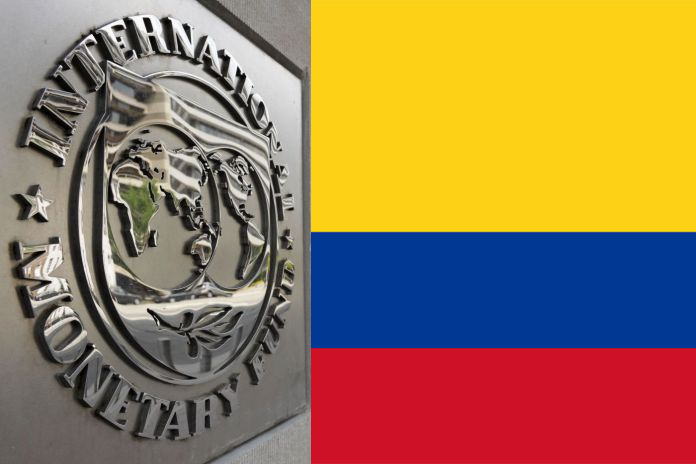WASHINGTON, USA – The executive board of the International Monetary Fund (IMF) concluded the Article IV consultation with Colombia on March 25, 2022. This also included a discussion of the findings of the Financial Sector Assessment Program (FSAP) exercise for Colombia.
Colombia’s very strong policy frameworks and comprehensive policy response to the pandemic supported the economy’s resilience. A flexible exchange rate, central bank credibility under inflation targeting, effective financial sector supervision and regulation, a medium-term fiscal rule, and strong institutions have helped the country to withstand external shocks and promote economic growth. Over the last two years, the authorities have used the flexibility of their macroeconomic framework to deliver a coordinated and timely response to mitigate the impact of the pandemic.
Colombia’s economic recovery in 2021 was among the fastest in the region. After a strong economic rebound last year, Colombia’s economic momentum is expected to continue into 2022. Above-potential growth is expected around 5¾ percent this year, led by robust household consumption and continued recovery of investment and exports. Supported by a still accommodative monetary stance, the output gap is projected to close by 2022H1. Over the medium term, GDP growth is expected to converge to its potential growth rate of about 3½ percent. The projected increase in the price of key commodity exports would lead to a significant reduction in the current account deficit from -5.7 percent of GDP in 2021 to -3.3 and -3.4 percent of GDP in 2022 and 2023, respectively.
Inflation continues rising led by supply-side shocks in the context of strong demand. Higher inflation is expected to persist and will likely remain above the upper limit of the central bank’s tolerance band (4 percent) throughout 2022, with upside risks. Inflation is projected at around 6¾ by end-2022.
Risks to growth remain tilted to the downside. External risks remain elevated led by an intensification of the ongoing war in Ukraine. While Colombia stands to benefit from higher hydrocarbon prices, rising and volatile international prices for food and energy, as well as more persistent disruptions in global supply chains, would exacerbate domestic inflationary pressures. Global financial market volatility arising from the conflict or the monetary tightening cycle in major economies could also create shocks to capital flows. New outbreaks of Covid-19 variants could lead to subpar or volatile growth in trading partners. Domestic risks are also tilted to the downside – including uncertainty around the domestic evolution of the pandemic and political risks associated with the upcoming elections.
The banking system entered the COVID-19 pandemic from a position of relative strength, and the authorities mounted a strong policy and support response. As a result, the financial system has weathered the pandemic relatively well so far. As outlined in the FSSA, overall, banks are largely resilient to solvency and liquidity shocks. But it is essential to monitor interconnectedness and contagion in view of the complexity of financial conglomerates and increasing cross-border exposures.
Bank supervision has been enhanced, including by introducing a comprehensive framework for conglomerates. Macroprudential oversight is overall effective, but some macroprudential tools and data collection should be expanded to address leakages and risks from potential rapid household debt growth. The crisis management and safety net framework has been strengthened significantly, but recovery and resolution planning needs further improvements, including for cross-border institutions.
Executive board assessment
Executive Directors agreed with the thrust of the staff appraisal. They commended the authorities for their very strong policy frameworks and a comprehensive pandemic response, which have supported the economy’s resilience and a strong recovery. Directors noted that uncertainty and downside risks remain elevated, including from inflation, global financial conditions, and geopolitical tensions. They agreed that policies need to be recalibrated carefully to sustain the growth momentum, manage inflation, further strengthen public finances, and reduce external imbalances.
Directors agreed that an accelerated monetary tightening is appropriate to reduce inflationary pressures and safeguard the credibility of the monetary policy framework. They emphasized the need to ensure that policy decisions remain data-driven and accompanied by clear communication. Directors welcomed the authorities’ commitment to maintain a flexible exchange rate to help absorb the impact of global shocks, including swings in commodity prices. They encouraged the authorities to continue with international reserve accumulation over time to help maintain reserve adequacy and insure against external liquidity risks. Directors noted that the Flexible Credit Line provides additional buffers and enhances market confidence.
Directors commended the authorities for the improved public finances and strong commitment to maintain fiscal credibility. They recommended continued efforts to save revenue windfalls, control spending, and phase out exceptional support measures, as conditions allow. Directors recognized that the Social Investment Law, including a new debt anchor, is an important step to strengthen the fiscal framework. They stressed that deeper fiscal reforms to secure new revenue sources and enhance spending efficiency would safeguard key social programs and public investment, while further reducing debt.
Directors welcomed the strengthening of the regulatory and supervisory frameworks. They encouraged the authorities to build on this progress by implementing the 2022 FSAP recommendations. Directors underscored the need to enhance data availability, crisis management, and the bank resolution and macroprudential frameworks.
Directors stressed the importance of further structural reforms to boost productivity, external competitiveness, and greener, inclusive growth. They called for continued efforts to strengthen governance and the anti-corruption and AML/CFT frameworks. Directors looked forward to further progress in implementing the green strategy, reducing trade barriers, and increasing labor force participation. They commended the authorities for their ongoing efforts to integrate Venezuelan migrants into the economy.





